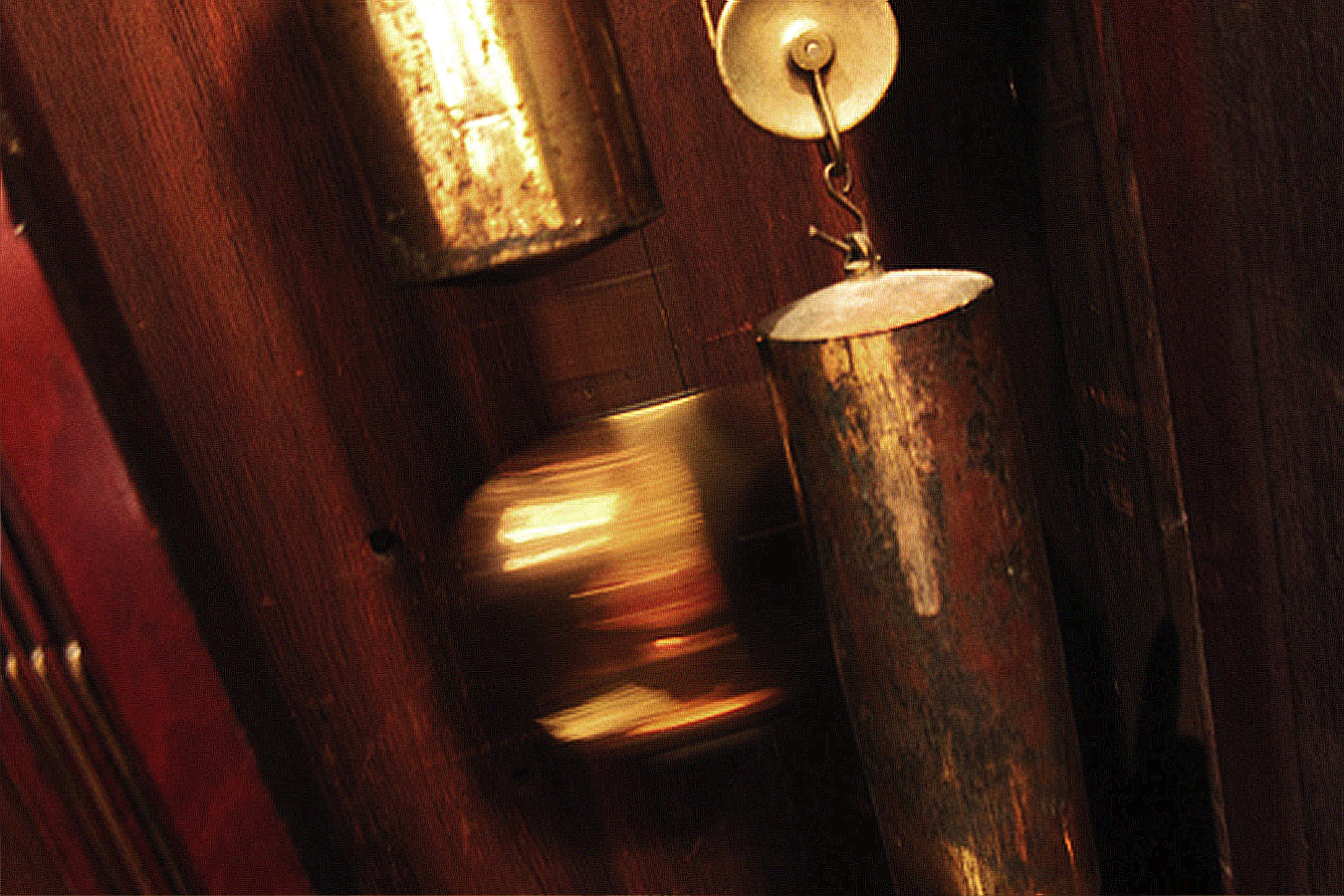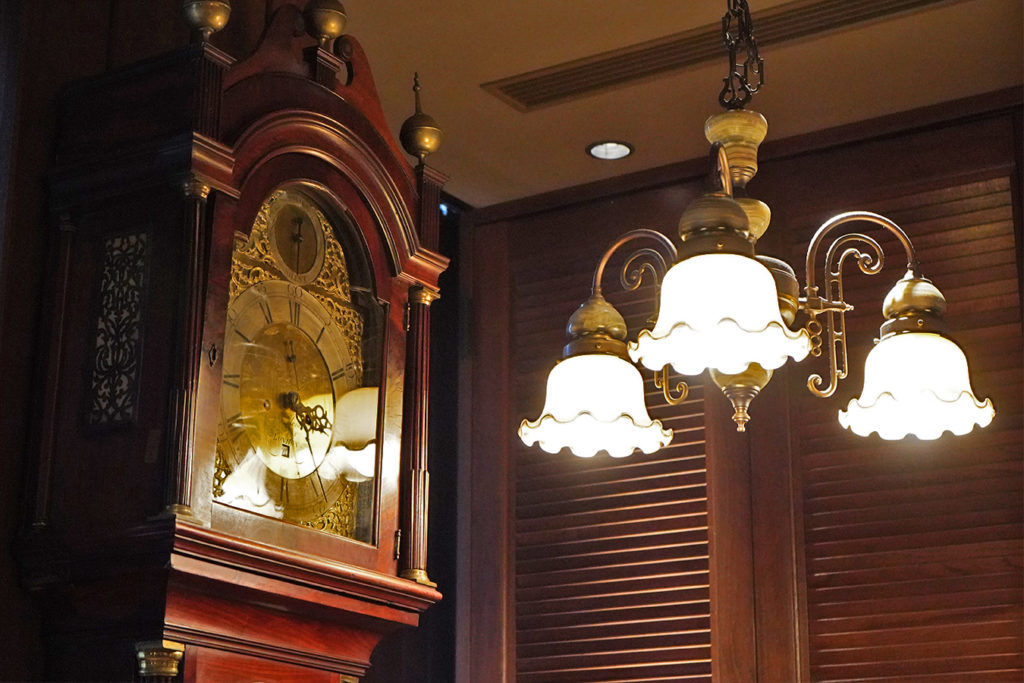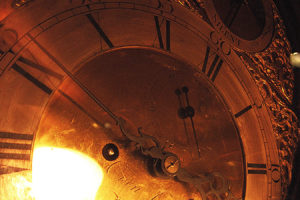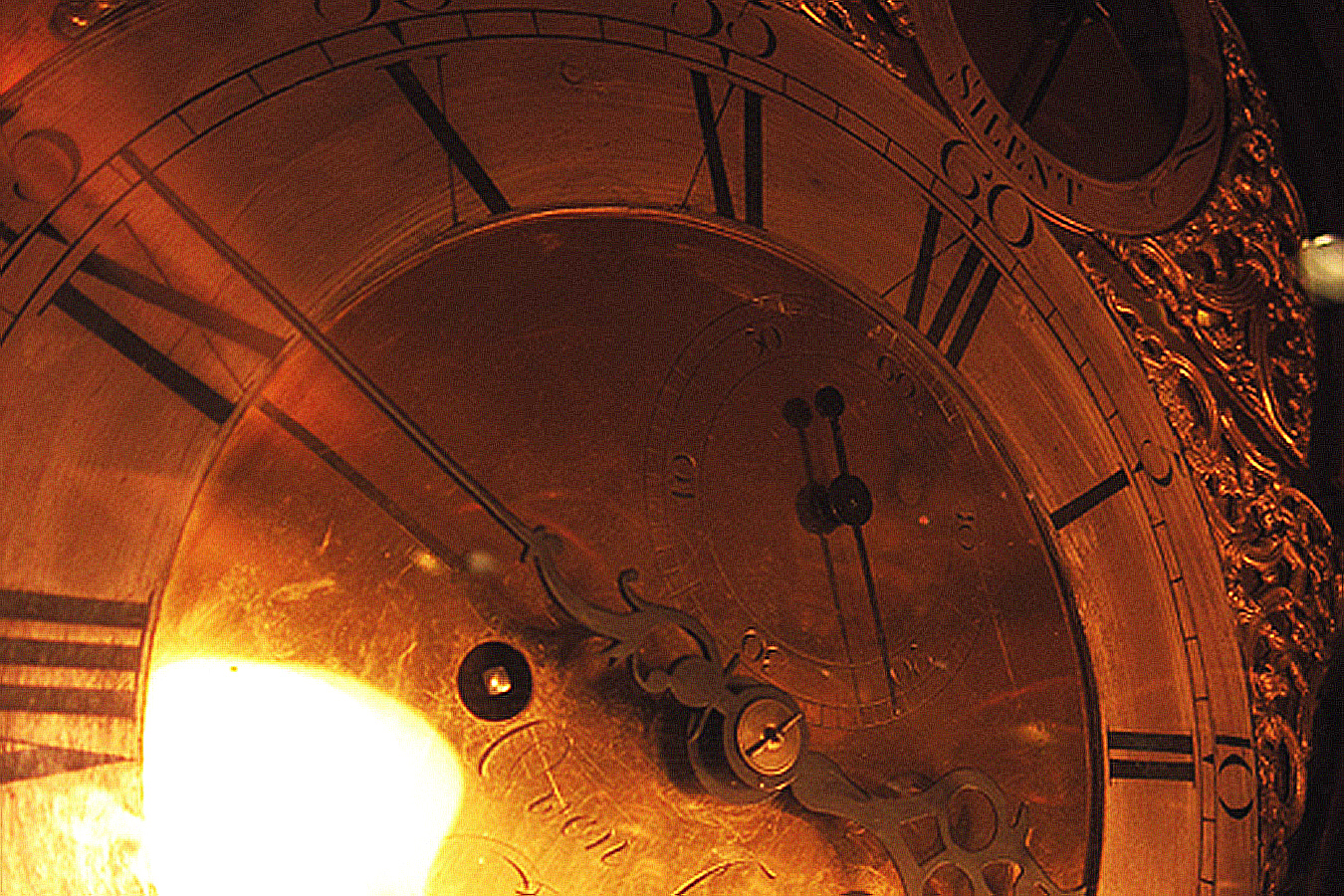The spirit of craftsmanship imbued within a clock that marks the ages

The grandfather clock located in one corner of KOMATSU BAR used to adorn the lobby of the Fairmont Hotel in Chidori-ga-fuchi, Tokyo.
From the guests who stayed at the hotel while commuting to the capital from other regions of Japan and the couples who held their weddings at the French restaurant Cerisier to the customers who had a glass at the English bar and the visitors to the tearoom Brasserie de la Verdure who shared their stories, all types of visitors to the Fairmont Hotel looked at this grandfather clock to check the time for meetings and departures.
The timepiece was purchased by Takeo Kosaka, the operator of the hotel, around 1970 when he went to Britain in order to broaden his horizons. An antique lover, Kosaka discovered the grandfather clock after looking around several of London’s antique markets.

It was another era back then, so it took considerable time and expense, not only to go to Britain in the first place, but in order to purchase the grandfather clock and transport it to Japan. Even after being placed in the hotel lobby, the grandfather clock required the time and effort of many because it needed more day-to-day maintenance than electric or quartz clocks. The clock was powered by a spring and weights, so it would stop if it was left unattended. Someone among the staff at the hotel had to take continual care of it. On a regular basis, the spring had to be wound and the weights cleaned carefully, as dust and heat could cause the clock to lose time. After being shaken by an earthquake, someone had to check that the clock hadn’t stopped.
Today’s electric clocks, quartz clocks, and atomic clocks are much easier to maintain. Admittedly, we may have occasionally considered upgrading from this labor-intensive grandfather clock to something more modern. However, considering how it continues to keep time by being cared for by people, we would like it to stay just as it is, now and in the future, precisely because it has received the loving care of so many.
The selling point of Fairmont Hotel was its service, and the selling point of Komatsu Store’s retail business was its merchandise. In this day and age, people tend to think that inexpensive things sell and that things that are not inexpensive won’t sell. However, as a retail business we need to think through the implications of selling merchandise. Pricing only becomes meaningful at the point when we have customers who have decided they want our products after confirming the quality, design, and convenience of the items we deal in, not by resorting to lower prices. To those of us who hold this view, keeping the grandfather clock—by no means an inexpensive investment—in the corner of KOMATSU BAR symbolizes Ginza Komatsu’s stance towards real products.

Fairmont Hotel grandfather clock keeps ticking at KOMATSU BAR
Giving customers a quiet and blissful time to enjoy a glass



